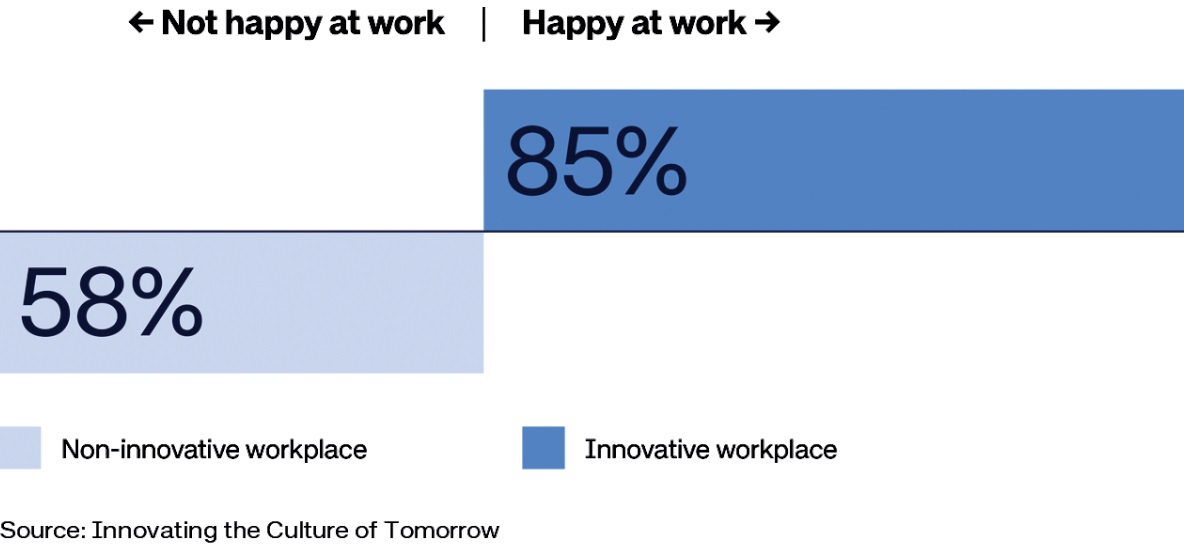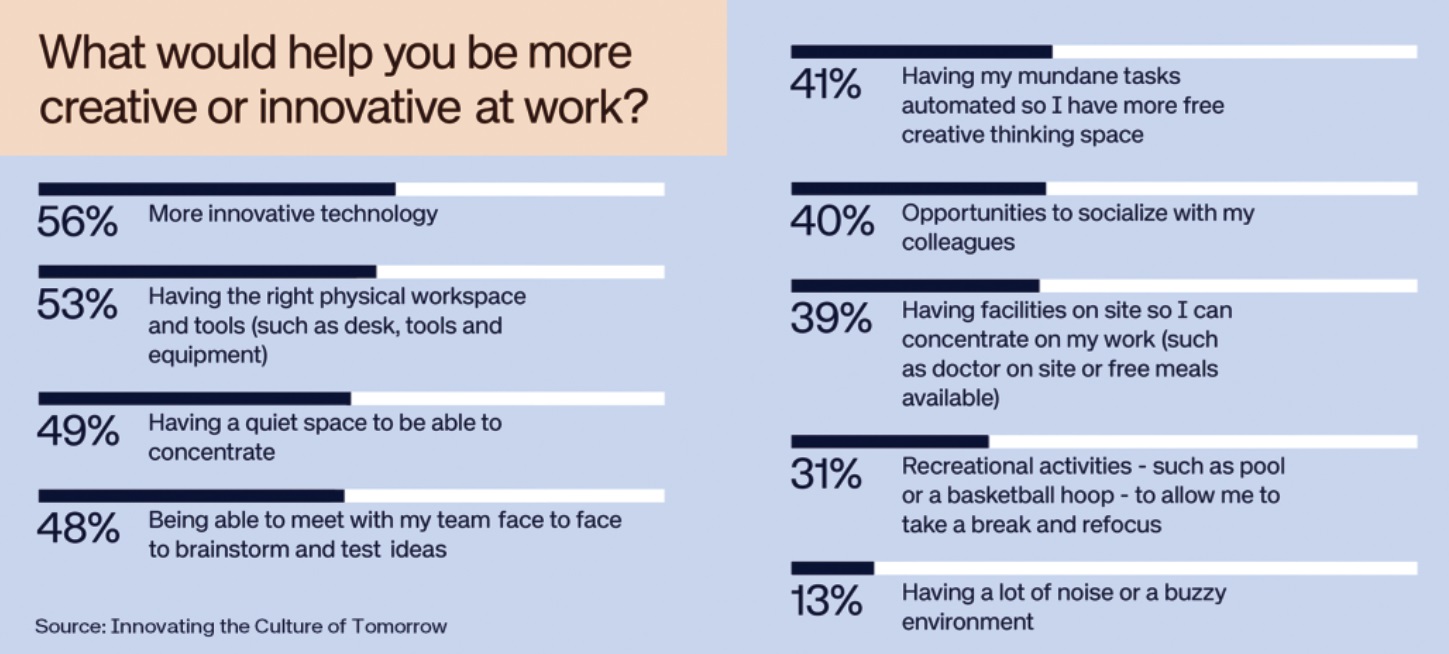By Ana Doval de las Heras, SVP at Amadeus
Want to know what really matters to your people? Why not ask them? That’s exactly what travel technology company Amadeus did, in an exercise to optimize their IT talent retention. Ana Doval de las Heras tells us what they found.
Unlimited time off? Working from the beach? Pizza Fridays? Ping-pong before lunch? Do professionals even care about perks? Do we now work in a post-perk world?
Every day, a new claim emerges that apparently tells us exactly what professionals care about. But how hard are they listening, and does it matter?
Well-run businesses are the sum of their people, and attracting and retaining the right talent is central to success. This is something my organization cares passionately about, which is why we commissioned an independent piece of research, asking 2,200 technology professionals in eight core markets what their priorities, concerns, and ambitions are.
For global businesses, this has never been more important. As the flow of resources and traditional market dynamics have been challenged, the technology industry has become increasingly competitive. For organizations looking to outpace their competitors, a central part of their business output will be determined by whether they can attract top talent and empower this talent to realize its potential.
For organizations looking to outpace their competitors, a central part of their business output will be determined by whether they can attract and empower top talent.
Innovating the Culture of Tomorrow: Exploring how global technology talent thrives1 reveals insights that challenge preconceived notions of what technology professionals care about, alongside highlighting long-held truths like the importance of collaborative and people-centered workplaces.
This report has brought the central themes of innovation, flexibility, training, and inclusivity to the foreground, exploring what they mean for professionals and discussing how we as employers can listen more and build these insights into our workplaces.

Innovation Matters, A Lot
Throughout every stage of employment – before joining, during, and after – a company’s reputation for innovation stands out as the most powerful influence on a technology professional’s decisions to join or remain.
When choosing a potential employer globally, they ranked “being innovative” ahead of all factors, including salary, as the most important and decisive factor. Once at work, those working at self-defined innovative companies were over five times more likely (43 per cent) than those at non-innovative companies (8 per cent) to say they were “very happy”, whereas tech workers at companies not perceived as innovative were four times more likely to say they were considering leaving within the next year.

For some readers, the weight and importance attached to innovation could be surprising. However, looking at this against the technology industry as a driver of change makes more sense. James Berry, founder of the UCL MBA program and contributor to the report, explained it this way:
“For technology professionals, the only constant is change, from the problems they solve to the software they use – everything is continually evolving. Technologies, processes, and job titles once regarded as solid and unchanging have changed or even disappeared. And the technology industry is a driver of this change, which means that technology professionals are acutely aware that being at an innovative company promises greater security and longevity.”
In other words, amidst the winds of change, you’d rather be on the boat with the best sail. For organizations looking to attract and retain top talent, this highlights the importance of communicating your innovation credentials in a salient way.
Training And Development
To keep up with the pace of change, most technology professionals anticipate several career pivots and adjustments. While we’ve seen this trend in place for some time, it’s interesting to see it confirmed by the research to the extent that only 6 per cent of tech professionals don’t anticipate a career change or role evolution.
As a result, a premium has been placed on skills, rather than titles, and employees are increasingly seeking training and upskilling opportunities to stay ahead of the curve. Indeed, nearly half (48 per cent) of respondents cited access to training as a key factor keeping them at their current companies.

Training can look different in every organization; at Amadeus, we encourage internal mobility to promote learning and skill diversification. This has resulted in 27.4 per cent of our employees changing roles in 2023. We also offer access to 94,000 training courses and host development sessions within our Career Week, which we just celebrated in November this year.
In an employment market characterized by relatively high attrition rates2, employers can leverage training to grow knowledge in their teams and as a retention tool. Upskilling can enhance agility at the employee and institutional level.
Back To Basics: Flexible, Functional Workplaces
Innovation can be an elusive concept with a myriad of competing definitions. Yet, when asked to picture an innovative workspace at a technology company, most people conjure an image of bean bags, table tennis tables, and Lego.

Interestingly, the respondents disagreed with this conception and said that “buzzy” workplaces with recreational spaces were the least conducive to fostering innovation. Instead, it was much more straightforward; respondents called for improved technology (56 per cent), physical tools like suitable desks and equipment (53 per cent), and a quiet space (49 per cent). These responses are refreshing after years of novel office-ware have been prescribed as an enduring solution.
However, what I found most interesting is that having access to facilities to meet with the team face to face to brainstorm and test ideas (48 per cent) is just behind.
Beyond the provision of the de facto spaces to collaborate in, organizations also have a duty to foster socially supportive spaces and create psychological safety. Creativity and, by extension, innovation are facilitated by spaces where people feel able to suggest new approaches and are actively encouraged to experiment. Using internal incubators or creating programs to experiment is one way to build a wider culture of psychological safety.
In an employment market characterized by relatively high attrition rates, employers can leverage training to grow knowledge in their teams and as a retention tool.
At Amadeus, our Nexwave3 and LIFT programs are a space for people to experiment, where ideas are incubated but don’t have to be perfect, and it is OK if they don’t all work out. We have seen some amazingly creative, unique solutions and technologies come from these programs where teams are provided the space to foster innovation. The freedom to innovate is invaluable to employees and delivers significant returns to organizations that enable it.
Real Inclusivity Means Responding To Your Employees
Technology professionals want to see diverse workplaces, and 79 per cent of them want their employers to evidence this. This reinforces the importance of communicating your activities and credentials internally, not least so that employees know what they’re able to access themselves.
Importantly, inclusivity – and what organizations need to offer to enable meaningful inclusivity – will continue to evolve. Organizations should therefore commit to being open, reflexive, and ready to develop new programs as demands arise. For instance, we’ve been an active participant in World Mental Health Day, and this year we have evolved from local events to run our first global Mental Health event, featuring expert sessions designed to support and equip our teams.

In line with this culture of inclusivity, we have vibrant Employee Resource Groups in Amadeus, which foster diversity and a sense of belonging. Our Amadeus Proud Network, for LGBTQIA+ employees and their allies, and our Amadeus Women’s Network, are well established and have chapters in many of our offices around the world. A relatively new group is Amadeus Fenix, which supports employees dealing with long-term illness, either personally or through their family members. Creating a supportive infrastructure that recognizes the complexities of our employees’ lives is crucial to meaningful inclusion and engagement. I believe that this commitment to being open and responding to our employees’ needs plays a role in our status as a Financial Times Leader in Diversity4 for the last six years.
The Way Forward
The world is constantly changing, and nowhere changes faster than the technology industry. The rate of change means that technology professionals prioritize being at an innovative company with scope to upskill, develop, and feel supported. And, if these requirements aren’t met, they feel empowered to leave.
We originally commissioned this independent report5 to give voice to talent in technology and, now that the results are in, we hope it helps to stimulate thought, discussion, and action amongst employers as we shape our workplaces in the image of the professionals of tomorrow.
About the Author
 Ana Doval de las Heras is the Senior Vice President of People & Culture at Amadeus, leading strategy for over 19,000 employees globally. With 30+ years of international experience, she has held various leadership roles since joining Amadeus in 2002.
Ana Doval de las Heras is the Senior Vice President of People & Culture at Amadeus, leading strategy for over 19,000 employees globally. With 30+ years of international experience, she has held various leadership roles since joining Amadeus in 2002.
References
-
New study finds that 40% of global tech professionals expect to make at least three career changes. November 18, 2024. Amadeus. https://amadeus.com/en/newsroom/press-releases/study-priorities-technology-professionals.
-
The True Cost of Employee Turnover in Tech. bucketlist. July 17, 2024. https://bucketlistrewards.com/blog/the-true-cost-of-employee-turnover-in-tech/.
-
The secret sauce: Six changes that made Amadeus Nexwave a top business incubator in the travel industry. Amadeus. November 11, 2024. https://amadeus.com/en/blog/articles/six-changes-amadeus-nexwave-top-business-incubator.
-
Our Awards. Amadeus. https://amadeus.com/en/about/awards.
-
New study finds that 40% of global tech professionals expect to make at least three career changes. November 18, 2024. Amadeus. https://amadeus.com/en/newsroom/press-releases/study-priorities-technology-professionals.




































